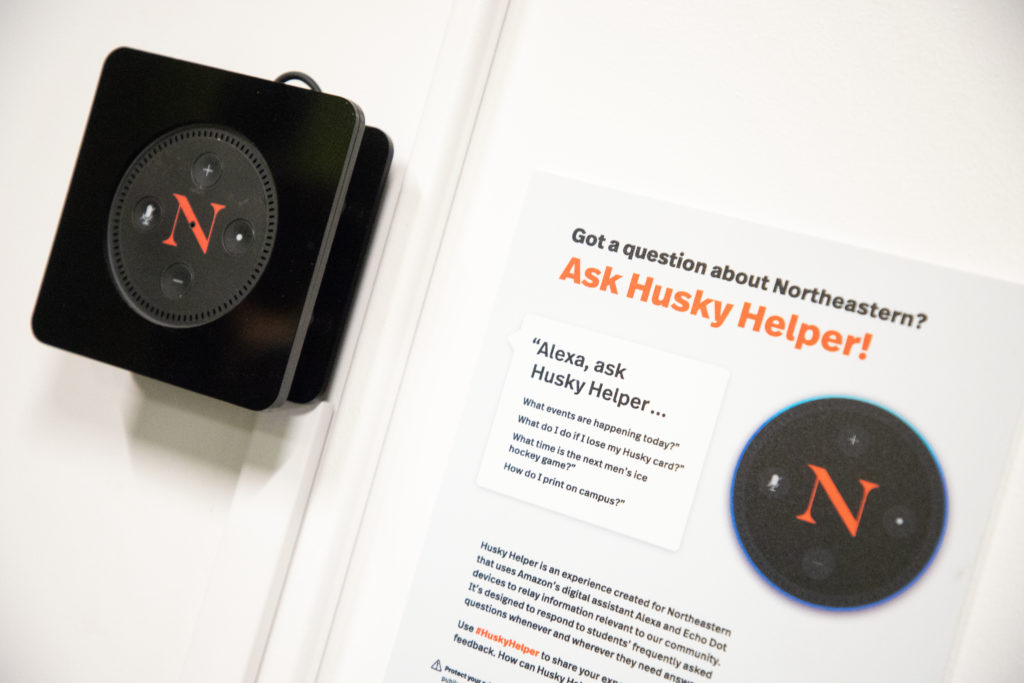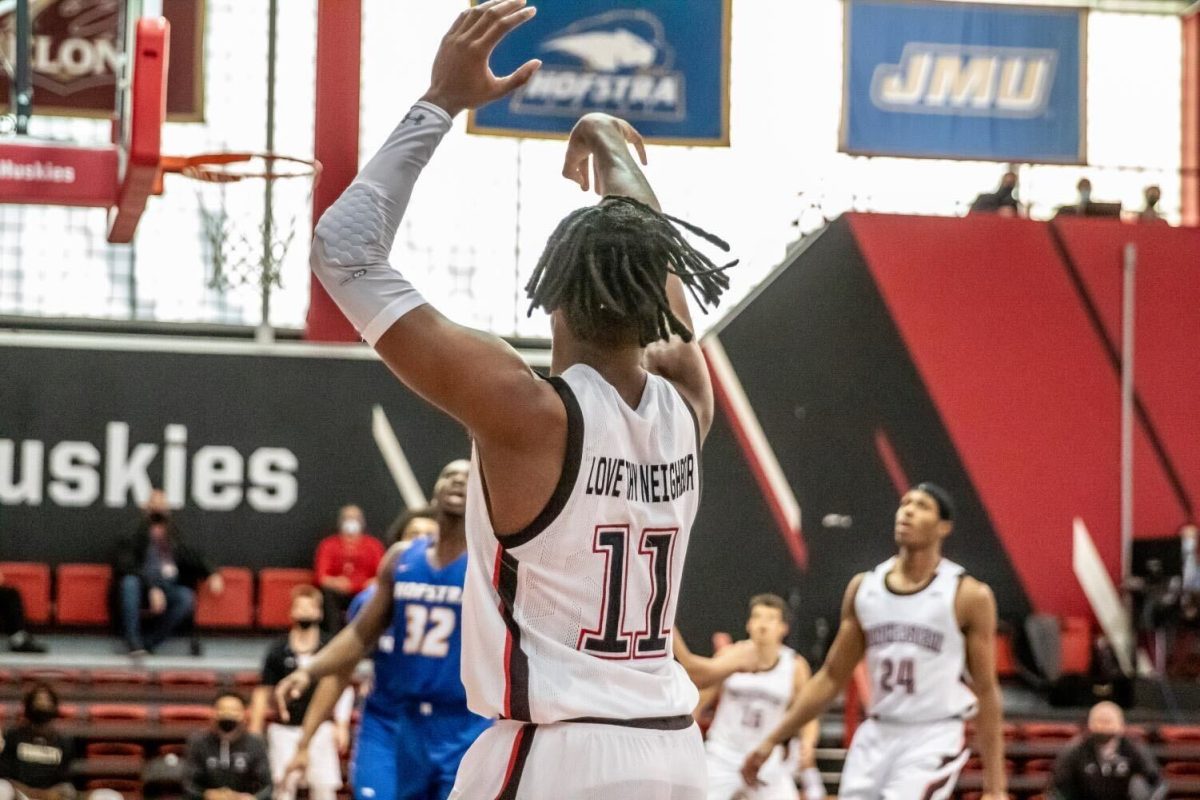Husky Helper met with tepid response from students
September 26, 2018
A misplaced Husky Card. A malfunctioning printer. A packed schedule of student events. Northeastern students can face these issues at any moment, and the university has taken steps to ensure that students find solutions quickly and conveniently.
Amazon Echos are placed at over 60 locations on campus with the ability to answer 250 possible questions from students. Programmed with a custom version of Alexa, Amazon’s virtual assistant, the devices can answer questions commonly received by departments such as the Enrollment Management Call Center, the Office of the University Registrar and Information Technology Services.
The devices, called Husky Helpers, can respond to inquiries ranging from urgent matters, such as how to replace a lost Husky Card, to events around campus, such as athletic competitions. While roaming a residence hall or walking to class, students can now ask a Husky Helper for publicly available information about financial aid, housing, dining and more at any time.
“The technology that enables the devices to answer questions related to Northeastern was developed here at the university by a small team that is now a spinoff company called n-Powered,” said Renata Nyul, vice president of communications at Northeastern, in an email to The News on Sept. 16.
Somen Saha and Joel Evans are the co-founders of n-Powered, a company that focuses on voice and artificial intelligence technology. Saha believes this technology is beneficial to students as well as the university.
“This is not just an innovation for innovation’s sake,” Saha, a former IT director for Northeastern, said. “As this information is easily available to the student, the university can concentrate on things which are more important for the future growth of the student.”
Placed at each station are posters with information about what the devices can do. The posters offer sample questions, including “What events are happening today?” and “What time is the next men’s ice hockey game?”
Despite Husky Helper’s capability, many students remain unaware of where to find the devices and how to use them.
“I have not actually seen the Amazon Echo stations around campus,” said Samuel Starkman, a fourth-year computer engineering major, “so I guess that leads to them not being very accessible.”
On Sept. 4, students received an email from News@Northeastern informing them about the new Husky Helpers.
“This is the first phase of a large project and we have started getting the message out to the student body about the initiative,” Nyul said. “We will continue to keep the community informed about the latest as we introduce new functionalities and enhancements.”
This email, containing the subject line “Amazon Echos dot Northeastern’s Boston campus to provide a Husky Helper for students,” has been the university’s primary method of introducing this technology to the student body as a whole to date.
“They weren’t advertised at all,” said Elizabeth Feltner, a second-year political science and economics combined major. “It was like we just walked up and they were there. I don’t know what their intended use is.”
Notably, a Google search for “Northeastern Alexa” leads to high-profile news coverage about Husky Helper from outlets such as The Boston Globe, CNBC, Fortune and USA Today.
Other students found the Husky Helpers to be conveniently located, but expressed a desire to receive answers based on their location.
“When I asked it if it could help me to use the printer, it directed me somewhere else,” said Shurobhi Nandi, a first-year biochemistry major. “Depending on the location, certain questions are going to be asked. If it’s right next to the printer, it should be able to respond to questions about the printers.”
N-Powered is working on improvements to the Husky Helper that will take the information from the walls of buildings around campus and place it in the palm of each student’s hand.
“For most students, their phone is an integral part of their daily life. Because Alexa is now available through any smartphone, you can go anywhere and get that same information. You don’t have to click on links, you don’t have to call,” Saha said. “As you think it, you can just say it, and it tells you.”
This technology will also be able to open relevant links on a student’s phone.
“We did a pilot at Northeastern with about 60 students from the Explore Program,” Saha said. “The feedback was overwhelming because students would be waking up in the morning, brushing their teeth, asking Alexa what time they have classes, what events are happening that weekend, everything.”
After signing a disclaimer, students will be able to use Husky Helper to create appointments with academic advisors and learn about their financial accounts and class schedules.
“At the beginning of the year, it’s always hard to remember what class is at which time and in what room and building,” said Catherine Murphy, a fifth-year physical therapy major, “so being able to pull out your phone and find the answer would definitely be easier than having to login online while walking through campus.”
The level of demand for access to this information through cell phones, as opposed to Amazon Echos, is unclear.
“I guess I’m not entirely sure what Husky Helpers do,” Murphy said. “Maybe I should ask one.”







